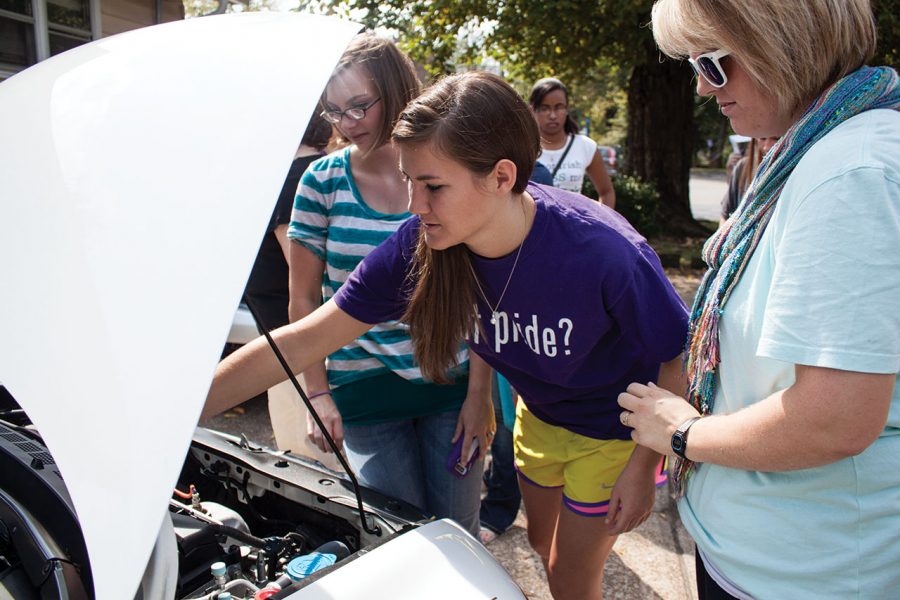Jerry Damson Honda demonstrates car maintenance
October 4, 2012
Bobby Nabors of Jerry Damson Honda spoke at the Center for Women’s Studies Sept. 28 regarding car maintenance and what to look for when purchasing a car.
According to a survey conducted by Autoquake.com, women are twice as likely as men to avoid basic maintenance routines such as checking oil levels and tire tread depth.
“I want you all to be very comfortable with these processes because you might have to do this by yourself one day,” Nabors said.
Nabors gave pointers such as how often to check fluid levels and displayed the color theme Honda puts on their entire line of automobiles.
“The oil is always orange, and the transmission is always yellow,” Nabors said. “It’s important for you to maintain the car correctly because the more often you maintain it, the longer it will last.”
Students said they attended to learn more about cars.
“I think it’s important that females learn about car maintenance and how to purchase a car, because you never know when you might need to do the simple things to your car,” said Katie Mauldin, a junior attending the seminar. “I had a flat tire last semester and I had to call someone to come help me fix it—now I know how to change my own.”
Mauldin brought up a few points about purchasing a car that were directly answered by Nabors.
“If the person doesn’t want to give you a Carfax, you need to turn around and walk away,” Nabors said. “You need to be able to keep up with everything that has been done to the car because the fact of the matter is, people are working to make a profit, and they will try to sell you things even if you don’t need them.”
Nabors also shed light on the importance of understanding the basic functions of car parts and what to do in the event that a specific car part fails. When discussing tire pressure and the checking thereof, he emphasized the importance of checking the spare tire and the donut frequently.
Lynne Rieff, a history professor attending the lecture, included an anecdote to illustrate Nabors’ point.
“I was in Birmingham at about 5 or 5:30 when I drove over a nail,” she said. “All of the repair shops were closed, so I had to drive all the way back on a donut.”
Several questions were raised regarding the subject of prejudice some car mechanics and sales associates have toward women regarding the maintenance and purchase of cars.
“You have to understand that they’re going to dismiss everything about you,” Nabors said. “If that happens, ask for the manager because you deserve just as much respect as anyone else. You need to stand your ground, always get a second opinion, be realistic when negotiating and, above all, do your research — you have to be able to justify your figures.”
From the color-coded fluid gauges to the Carfaxes, the range of ages represented at the seminar saw firsthand the care it takes to maintain a car.
Nabors’ understanding of the bias left the group very comfortable and open to various questions.
“Think of it like your classes,” Nabors said. “The more work you put into it and try to understand it, the better you’re going to come out in the end.”












